2025 FAS-SEAS SENATE VOTER’S GUIDE
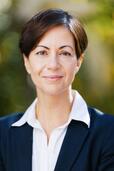
Marijeta Bozovic
Professor, Slavic Languages and Literature
HUMANITIES
As a scholar working at the intersection of art and politics, I have an intellectual and ethical commitment to the work of organizing and self-governance. In 12 years at Yale, I have served in many administrative roles in my home department and contributed to Film and Media Studies and WGSS, with which I am also affiliated. I have worked on interdisciplinary intellectual initiatives in Translation Studies and in Critical Computing Studies, served as the external member of the Social Sciences TAC, and participated in many other collaborative forums with faculty and staff across the university. I see leadership and activism, including my previous Senate terms from 2017-2019 (as junior faculty) and 2023-2025 (in the last year, as Deputy Chair), as inextricable from the work of teaching and research.
In the last year, the Senate has tried to rise to the challenge of our national, geopolitical, and institutional moment by providing opportunities for faculty to listen to one another, to ask difficult questions and challenge directives, and to foster the solidarity we may need to meaningfully survive. We have researched and written reports, drafted statements, debated positions, and taken stands. Our open letter to the administration, co-authored with the Yale AAUP, was signed by nearly 900 members of the Yale faculty across ranks and divisions and has been covered by national media. I believe it is our collective duty to ensure that the project represented by the Yale FAS-SEAS Senate endures, with both passion and purpose.
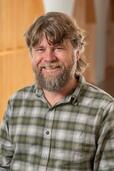
Casey Dunn
Professor, Ecology and Evolutionary Biology
SCIENCE
I joined the Yale faculty in 2017, and was also a grad student here from 2000-2005. To meet the exceptional challenges of our current time, it is more important than ever that we have strong faculty links across divisions and schools. This includes governance, but goes well beyond. We need even stronger intellectual ties to collectively draw on each other’s distinct areas of expertise. I am excited to find ways to build strong connections across faculty, even when our areas of study are distant. This will help us strategize to meet the needs of the day by doing things together that we can’t do alone, and exercise our collective curiosity by engaging more frequently and substantively with colleagues beyond our own areas of expertise.
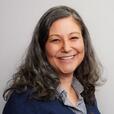
Cynthia DeRoma, PhD
Senior Lector I, English Language Program, Center for Language Study
HUMANITIES
After seven years at Yale and benefitting from the achievements of previous senators, it would be a privilege to do my part now in serving the Yale community through the FAS-SEAS Senate. I have been an educator for over 30 years, over half of which in higher education serving undergraduate and graduate students as well as visiting scholars, postdocs, and fellow faculty. Working with international graduate students from all departments for the past 15 years at Cornell, the University of Connecticut, and Yale has also given me the perspective of how current faculty is shaping the paths of future faculty members from the most diverse backgrounds. Outside Yale, I have been heavily involved in professional organizations that connect practitioners from all over the world, which has given me chances to both appreciate the unique conditions we have here and learn alternative ways of dealing with similar issues.
I hope to stand on the shoulders of my predecessors to continue working alongside my colleagues as a united front to advocate for equitable opportunities to ladder and instructional faculty alike, with recognition for multiple ways of showing excellence, diverse paths for growth, and support when facing unexpected circumstances. Much is being said recently about academic freedom, yet freedom can only exist once one’s basic needs have been secured. In our case as faculty, these needs include stable work environments and the trust that our institution will stand up for us in the face of threats to our existence as scholars and educators. I hope to be part of the effort to represent our collective voices as we join the fight to safeguard the future of science and innovation through education and research.
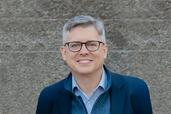
Michael Farina
Senior Lector I, Italian
HUMANITIES
Academic freedom: No greater risk lies before us during the next three years. The executive branch is no longer the elephant sitting in the back of the room—it is coming for the American university, trampling academic freedoms daily. Threats to faculty autonomy and integrity—from Columbia to Harvard to Yale—must be confronted directly. This is clearly the defining issue of our time.
As I see it, the Faculty Senate faces three critical imperatives in response to the current presidency: (1) defend our teaching, (2) protect our research, and (3) safeguard the integrity and future of the American university. The stakes are that high.
At the same time, the Senate must continue to address the vital day-to-day concerns that impact faculty wellbeing: benefits, tenure, and fundamental fairness. We must strongly oppose salary freezes or raises below inflation. These challenging times demand courage, and our Senate must continue to confront internal and external threats with conviction.
My experience serving in local political office, managing the political campaigns for Mayor Justin Elicker, the CT Speaker of the House, and Congressman John Larson—and contributing to significant legislative victories—has prepared me for this role. My background in campaigns and legislation can help us navigate this critical moment.
I have proudly taught at Yale since 2005, and teaching has always been at the heart of my career. My research interests span foreign language pedagogy, translation theory, medieval cookbooks, and artificial intelligence. My recent role in our ChatGPT “walled garden” working group helped lead to our Clarity platform, and my organization of a faculty mini-course on Teaching and Learning with ChatGPT has helped me gain a deeper perspective on the challenges and opportunities AI brings to our profession. Significant changes are coming, and we must be prepared.
I ask for your vote sincerely. I accept this nomination because I believe in our ability to address these challenges and more, together. We can protect our pay, defend our academic freedom, and plan for the future.
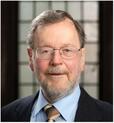
Michael Fischer
Professor, Computer Science
ENGINEERING
I have served on the FAS-SEAS Faculty Senate since December, 2022. The Senate is now more important than ever as higher education is facing external pressures to reaffirm its central role in American society.
I have been a strong advocate for faculty governance and transparency at all levels of the university, from the administration to the Senate itself. My goal is for the Senate to truly become a place where those with differing viewpoints can learn from each other through respectful dialog and debate. The intention is not for the Senate to present unified viewpoints on particular issues but to give space for all FAS-SEAS Faculty to express their opinions with reason and respect in a free and supportive atmosphere.
Working together with each other and the administration in a spirit of mutual support, difficult as it may be at times, is the only way for Yale to continue as a source of light and truth in a world of growing disinformation and darkness.
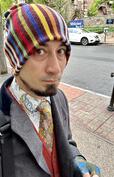
Alessandro Giammei
Assistant Professor, Italian Studies
HUMANITIES
I joined Yale less than three years ago, but I immediately felt part of a strong and welcoming community of colleagues. As a migrant scholar trained elsewhere, service has been my way of understanding—and sometimes challenging—the institutions where I’ve worked in this country: a research university, a liberal arts college, and a volunteer prison education program partnered with a community college.
At Yale, the Faculty Senate is a vital space for collectivization, transparency, and transdisciplinary exchange—a place where our individual voices come together to shape the university’s direction or express reasoned dissent. That is why I’m honored to accept the nomination to run for a seat. If elected, I will advocate for international faculty and for Yale’s rich and diverse queer community. I intend to work to protect faculty autonomy and to graciously—but firmly—push back against pressures that seek to deform or erode the university’s mission.
This is a time of open and worrisome threats to the very nature of what we do. I believe that Yale’s faculty, exercising what Antonio Gramsci called ’the pessimism of reason and the optimism of will’, can be a model of organized, lucid, and influential resistance.
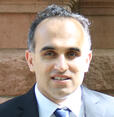
Amir Haji-Akbari
Associate Professor, Chemical and Environmental Engineering
ENGINEERING
I have served as a faculty member in the Department of Chemical and Environmental Engineering since 2017, where I teach and mentor both undergraduate and graduate students. My research group develops and applies advanced molecular simulation techniques to study rare events—phenomena that occur rapidly but only after long waiting times. These events are central to many natural processes, from the formation of crystals to the folding of proteins and other biomolecules. I am also an active member of the computational statistical thermodynamics community. In the midst of the COVID-19 pandemic, I co-launched the Statistical Thermodynamics and Molecular Simulations (STMS) seminar series, which has grown into a vibrant virtual community that brings together researchers from around the world and makes statistical mechanics more accessible to a global audience.
My perspective as a scientist and educator has also been shaped by my lived experience with visual disability. Born with congenital cataracts, I have navigated the challenges of poor vision throughout my life. This experience has not only influenced my scientific interests but has instilled in me a deep resilience and an acute awareness of human vulnerability. It has made me more attuned to the importance of empathy, compassion, and robust support systems in academia.
I view service in the Faculty Senate as an opportunity to engage more deeply with the workings of the Yale administration and to interact with faculty across FAS. In addition to advocating for mundane faculty concerns—such as graduate student support, research infrastructure, and teaching resources—I am particularly committed to working on policies that impact the recruitment, retention, and support of faculty with disabilities. Moreover, at a time when academic values are increasingly under strain, I also believe it is vital for the Senate to serve as a principled voice of conscience for academic freedoms and freedom of expression.

Sonam Kachru
Assistant Professor, Religious Studies
HUMANITIES
It is an honor to be nominated to serve on the FAS-SEAS Senate. I have not been at Yale long, but I already consider myself well-served here. I have been fortunate in the relationships I have been able to cultivate and in the opportunities I have been afforded to think seriously and meaningfully with students and faculty across departments. I am a philosopher, specializing in the history of Indian and Buddhist philosophy in South Asia. I am interested in transformative arguments wherever they are found, be they from ancient South Asia or contemporary American journals; whether articulated in technical philosophical prose or literature. While my courses at Yale aim to promote the value and virtues of humanistic inquiry, and to expand our sense of where experiences and ideas worthy of our humanistic attention can be found, when I teach I am mindful of the values and habits acquired in a past life when I was an engineering major. I try to bring my love and deep appreciation for the collaborative rigor and the multi-generational scale of research characteristic of science to my work in the classroom and beyond. Be it in informal conversations or symposia, I love what happens when good people think well in conversation. At Yale, I have been a Whitney Humanities Fellow; currently serve as co-director of Archaia, the Yale Program for the Study of Global Antiquity; and I am a co-founder of the South Asian Humanities Initiative, dedicated to fostering conversations and collaborations among Yale humanities faculty and our neighboring institutions with an interest in global humanities. Truthfully, Yale is as labyrinthine as it is rewarding: I can’t think of a better way to orientate myself than to serve its rich community and I can’t think of a better time than now. We’ve long known this: universities are fragile achievements and delicate ecologies, requiring of us, as the medieval theologian and philosopher Peter Abelard (who knew a thing or two about academic service and pressure) once said, a continuous commitment to return to dig wells of living water, and not only for ourselves. I am ready to dig with all of you.

Rongzhen Li
Senior Lector II, East Asian Languages and Literatures
HUMANITIES
I am honored to be nominated to serve on the FAS-SEAS Faculty Senate. Over the past 22 years at Yale, I have had the privilege of serving as the Chinese Program Coordinator for four years and collaborating closely with colleagues across the Chinese, Japanese, and Korean language programs. I am also actively engaged with the broader community, serving as a provost and member of organizations such as the Southern Connecticut Chinese School and the Chinese American Heritage Association.
If elected, I will prioritize issues that directly impact the day-to-day lives of instructional and untenured faculty—particularly in the areas of professional development, teaching innovation, and faculty benefits. I am committed to supporting colleagues in realizing their full potential and contributions to the Yale community. I look forward to serving you all.

Megann Licskai
Lecturer, History and HSHM
HUMANITIES
After completing my PhD in Yale’s program in the History of Science and Medicine, I spent a year teaching in Canada, where I was the representative for my faculty bargaining unit on the national Canadian Association of University Teachers council. I was also a member of our bargaining committee in our contract re-negotiations. In this role, I successfully advocated for increased clarity in labor expectations and job offers; flexibility in Instructional promotion pathways; protection of intellectual property for recorded course materials; and increases in salary, professional development funds, and moving expenses. I was thrilled to be invited back to Yale as a Lecturer in Fall of 2023. Since my return to New Haven, I have served as HSHM’s Senior Project Director and as a founding member and research associate in the Community Histories Lab at YSM. As a product of and now a participant in Yale’s teaching, I was pleased to be nominated to run for the FAS-SEAS Senate. If elected, I would continue advocating for faculty needs, with particular attention to ensuring that Instructional faculty continue to be equipped to deliver the excellent teaching Yale is known for.
As a beneficiary of hard-won improvements to Instructional appointments at Yale, I am especially interested in advocating for Instructional faculty, and as a non-citizen, I am familiar with challenges faced by international faculty at all ranks. I want to be a voice for protecting international faculty generally, but I also recognize the special vulnerability of international instructional faculty. I hope to collect data and write a report to advocate clear and defined pathways to permanent residency for these members of our intellectual community. Other areas I would like to explore include: fuller inclusion of fixed-term, non-renewable Instructional faculty at events like faculty orientation and in university funding pools; further clarifying requirements for Instructional promotion and who the administrations imagines in the roles of Senior Lecturer and Senior Lecturer II; and ensuring that all Instructional faculty have the resources (in terms of funding, professional development, and leave) to earn promotion.
More broadly, I am invested in reinforcing the value of academic research across university departments, and especially in the Humanities. I am excited to develop opportunities for innovative humanistic pedagogy as well as for interdisciplinary research and teaching collaboration. As we as a faculty grapple with what generative AI means for our fields, I want to continue to develop messaging that reinforces the value of the kind of thinking that we do to emphasize what is not easily replicable by machine learning models.

Luna Nájera
Senior Lector I and Associate Research Scholar, Spanish and Portugese
HUMANITIES
As a Senior Lector I and Associate Research Scholar in the Department of Spanish and Portuguese, my interest in serving on the university senate stems from a commitment to remaining vigilant to policies that affect faculty—especially in a time of uncertainty and instability. Now in my sixth year at Yale, and having previously worked at universities in the United States and Europe, I’ve come to see how crucial it is to think of ourselves not only as faculty but also as workers whose ability to teach and conduct research depends on structural conditions that must be actively maintained. These experiences have underscored the importance of open communication and sustained dialogue with university leadership to ensure that the necessary supports are in place for teaching and research to thrive.

Rourke O’Brien
Associate Professor, Sociology
SOCIAL SCIENCES
I would welcome the opportunity to serve on the FAS-SEAS Faculty Senate. Robust faculty governance is essential to the health of our institution, particularly in the current moment. I am committed to ensuring Yale prioritizes faculty research and teaching above all else, as these are the university’s core missions. Previously, I served on the Committee on the Economic Status of the Faculty, where I collaborated with colleagues to strengthen institutional support for ladder and instructional faculty. If elected to the Faculty Senate, I will continue advocating for expanded resources for research and teaching and will push to streamline or eliminate administrative processes that too often divert time and energy from our core work as scholars and teachers.
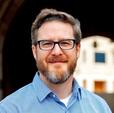
David Post
Professor, Ecology and Evolutionary Biology
SCIENCE
It is an honor to be nominated to serve on the FAS-SEAS Senate. I believe the Senate is central to strong faculty governance and critical for providing a collective faculty voice.
I joined Yale in 2002 and have had the privilege of serving the faculty, students, and staff of Yale in a myriad of roles including: Chair of the University Wide Committee on Sexual Misconduct; Executive Committee for MacMillan; Advisory Committee for Diversity and Faculty Development in FAS; Graduate School of Arts and Sciences Faculty Advisory Committee; Gift and Grant Risk Assessment Committee; and Director of Graduate Students for EEB.
I recently returned to campus after serving as the final Dean of Faculty and Vice President (Academic Affairs) for Yale-NUS College. I arrived in Singapore two weeks before it was announced that Yale-NUS College would close in 2025, and I spent three years supporting a community in crisis. In addition to overseeing and managing all aspects of faculty and academic affairs, I worked with faculty and staff across the College to create and implement a strategic plan to systematically close Yale-NUS. I am proud that we were able to provide the educational experience our students expected when they matriculated and simultaneously support the career needs and aspirations of the faculty and staff.
If elected, I would look forward to working with colleagues to address topics ranging from academic freedom, faculty wellbeing, promoting inclusive communities, and advancing the academic mission of Yale. I would bring extensive experience collaborating with senior administrators and working with faculty across the humanities, social sciences, and sciences, and a deep commitment to representing the interests and voices of our diverse community of scholars.
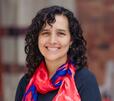
Claire Roosien
Assistant Professor, Slavic Languages and Literatures
HUMANITIES
I am honored to be nominated for a position on the FAS-SEAS Senate. I have been at Yale for a total of five years, first as a temporary lecturer and now as Assistant Professor in the Department of Slavic Languages and Literatures. My teaching and research examine modern culture and politics in Eurasia, focusing primarily on the Soviet period. I completed my PhD at the University of Chicago, where I participated in the effort for graduate student unionization and successfully fought for a childcare stipend for graduate students.
In a moment when higher education is under attack, institutions like the FAS-SEAS Senate can play a pivotal role in defending democratic decision-making, faculty governance, and freedom of speech. If elected, I will prioritize supporting the most precarious among us – especially instructional and untenured faculty, non-citizen faculty and students, and the staff that make our work as faculty possible. By centering the most vulnerable, we defend the core missions of our university – “research and scholarship, education, preservation, and practice.” As FAS-SEAS Senate member, I will work to build the embodied communities of care that make democratic decision-making possible.
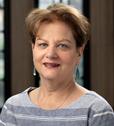
Constance Sherak
Senior Lector I, French
HUMANITIES
It has been a pleasure and a profound learning experience to have served on the FAS-SEAS senate during these past two years. I’ve learned a great deal about faculty governance and the power of the faculty’s voice for advocacy and for shaping new policies at the administrative level. These policies and necessary responses to new rulings on admissions, on our institutional neutrality policy, and most recently, academic freedom are urgent now more than ever and the work of the Senate has ever-increasing reasons to respond. I would like to continue to participate actively in these efforts as a senator. If elected, I would continue to lend a voice to this advocacy as well as to represent instructional faculty in their contribution to the university’s educational mission. I continue to be invested in pursuing academic support and increased transparency and accountability in university governance for all faculty. Thank you in advance for your support.

Stephen Slade
Senior Lecturer, Computer Science
ENGINEERING
I bring extensive Yale experience. I was an undergraduate music major, class of 1974. My 50th reunion was last year. As an undergraduate, I was the head of the Morse College Council. I returned a few years later as a graduate student in computer science. I served as the computer science department representative on the Graduate Professional Student Senate. I earned an MS and Ph.D. in computer science. My research is on cognitive models of decision making. I have written three books on computer programming and artificial intelligence. Recently I began to work on computational models of digital ethics.
Over the years, I have been a lecturer, an administrator, a parent of three Yale students, and a long time New Haven resident. I have taught thousands of Yale students. As assistant chair of the computer science department, I addressed a range of issues including recruiting junior and senior faculty, renovating 51 Prospect Street, and getting Yale connected to the Internet. I arrived at Yale in the early days of coeducation and saw its challenges and benefits through the eyes of my wife, who was class of 1976, and my two daughters (2010 and 2015). I have experienced the evolving town-gown relationship of New Haven and Yale.
Outside of Yale, I taught at the NYU Stern School of Business and also designed information systems for several presidential campaigns, the White House, and Wall Street. (I also got the White House on the Internet.) I am a hybrid. As an academic, I studied both humanities and science. Outside of academia, I have worked in both the public and private sectors.
I believe that the Faculty Senate can be an ethical voice in this community of scholars. As a senator, I would advocate for fundamental principles including beneficence, nonmaleficence, autonomy, justice, and explicability. That is, Yale should be a force for good in the world; allow its communities to decide to decide, with fairness and equity; and be transparent in its decisions and actions. We will not always agree. We will not always have a vote. However, we should always have a voice.

Brett Smith
Senior Lecturer, Mathematics
SCIENCE
I am a Senior Lecturer in the Mathematics Department, currently finishing my tenth year at Yale. My teaching focuses on the introductory math courses that serve a wide range of undergraduate programs, and I’m deeply committed to Yale’s educational mission. My work integrates evidence-based teaching practices, including mastery-based assessments, flipped classrooms, and project-based learning.
I arrived at Yale as a Helmsley Postdoctoral Teaching Scholar, a pilot program organized by the Poorvu Center that connected teachers across the math and physics departments as well as across institutions, including teaching Housatonic Community College and the University of Bridgeport. This experience exposed me to a diverse range of pedagogical training and a wider lens for thinking about higher education. Since then, I have kept a close connection to the Poorvu Center—they have supported several teaching projects, including a video game to help students with precalculus concepts, a project funded by the Rosenkranz Award to bring stories of people who use math in the real world into calculus courses, and the design of pre-class explorations for calculus.
Within the math department, I coordinate large courses and train both our postdoctoral and graduate instructors. This role includes teaching a pedagogy course for math graduate students and managing a certificate program for college mathematics teaching. Outside of the math department, I have served on the Poorvu Center Advisory Board and am currently serving on the OIEA Accessibility Advisory Committee.
I’m running for a position in the FAS-SEAS Senate to represent the voices of instructional faculty, and to advocate for inclusive, student-centered teaching that reflects Yale’s commitment to undergraduate education. I would be honored to serve.